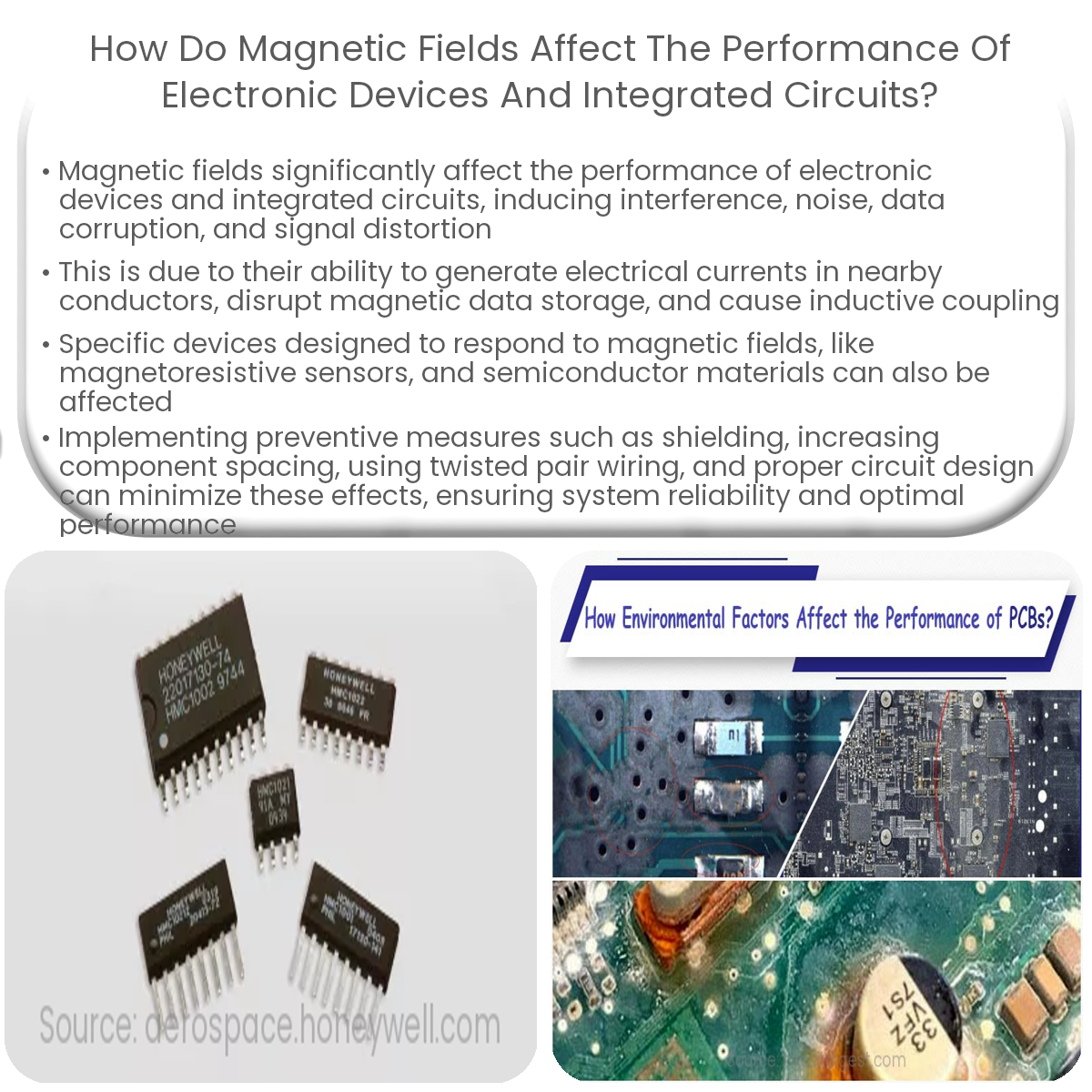Magnetic fields can cause interference, noise, data corruption, inductive coupling, and alter semiconductor materials, affecting electronic device performance.
Effects of Magnetic Fields on Electronic Devices and Integrated Circuits
Magnetic fields can have a significant impact on the performance of electronic devices and integrated circuits (ICs). Understanding these effects is crucial for designing reliable systems and ensuring their proper operation.
Interference and Noise
Magnetic fields can generate interference and noise in electronic devices. When a magnetic field changes, it can induce electrical currents in nearby conductors, causing fluctuations in voltage levels. These fluctuations can interfere with the performance of sensitive components, such as amplifiers and oscillators, leading to errors or malfunctions in the overall system.
Data Corruption
Data storage devices, such as hard disk drives and magnetic tape, rely on the precise manipulation of magnetic fields to store information. Strong external magnetic fields can disrupt this process, causing data corruption or even permanent data loss.
Inductive Coupling
Magnetic fields can cause inductive coupling between conductors in close proximity, which may lead to signal distortion or crosstalk. In ICs, where components are densely packed, this can be a significant concern. Designers often employ shielding and other techniques to minimize these effects.
Magnetoresistive Devices
Some electronic devices, like magnetoresistive sensors, are specifically designed to respond to magnetic fields. In these cases, strong external magnetic fields can alter their performance or cause them to malfunction. Careful design and shielding are required to ensure that these devices function correctly.
Impact on Semiconductor Materials
Magnetic fields can also impact the behavior of semiconductor materials. For instance, the Hall effect and magnetoresistance can cause a change in the electrical conductivity of materials when subjected to a magnetic field. This can affect the performance of transistors and other semiconductor devices.
Preventing Magnetic Field Effects
- Shielding: Using magnetic shielding materials, such as Mu-metal or ferrite, can help to protect sensitive components from external magnetic fields.
- Component Spacing: Increasing the distance between components can help to reduce inductive coupling and minimize the effects of magnetic fields.
- Twisted Pair Wiring: Using twisted pair wiring can help to cancel out magnetic field effects on signal lines, reducing interference and noise.
- Proper Circuit Design: Ensuring that circuits are designed with adequate decoupling capacitors, filters, and other noise reduction techniques can help to minimize the impact of magnetic fields on their performance.
In conclusion, understanding the effects of magnetic fields on electronic devices and integrated circuits is essential for designing and operating reliable systems. By implementing proper shielding and design techniques, these effects can be mitigated to ensure optimal performance.


